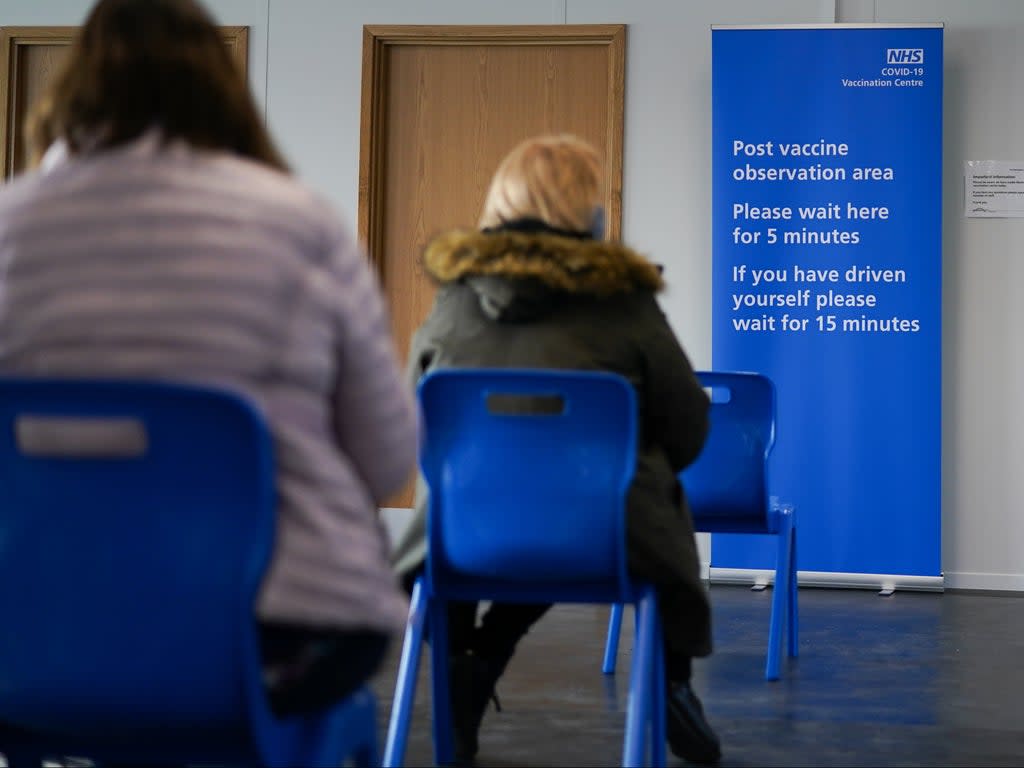Waiting lists hit new high of 5.74 million as NHS bosses admit system is ‘running hot’

NHS waiting lists have grown by another 174,000 people in just a month, with 5.74 million waiting for an operation in August and NHS bosses warning that the system is “running hot”.
Accident and emergency departments have seen their busiest September since 2010, with 2.1 million people turning up at hospital, 26 per cent higher than a year ago.
The NHS waiting times data does not include mental health, which has an estimated 1.5 million people waiting for treatment, taking the total to more than 7 million people in England on some form of NHS waiting list.
This is the highest number since records began in August 2007 and includes those waiting for hip and knee replacements and cataract surgery.
A record 5,025 people had to wait more than 12 hours in A&E for a bed once a decision was made to admit them. Hospitals across the country have declared incidents in recent days, with ambulance trusts facing long delays to hand over patients. One person in Shropshire waited 13 hours before even getting into A&E to be seen.
The latest data published by NHS England underlines the crisis facing the NHS over the summer, with the military called in to help drive ambulances and growing numbers of patients unable to get appointments with GPs because there is more demand and not enough doctors to meet it.
The number of patients waiting longer than two years for routine operations in England reached 9,754 in August. The number of people waiting more than a year has fallen for the fifth month in a row as hospitals try to tackle the backlog. A total of 292,138 patients have waited at least a year.
Ambulances responded to a record 76,000 call-outs classed as life-threatening, an increase of more than 20,000 on the previous high for September, while 999 operators took nearly 1 million calls in September.
NHS England has told hospitals to stabilise the number of patients waiting for hospital treatment, keep those waiting for more than a year at current levels, and eliminate two-year waits by March next year.
Professor Stephen Powis, NHS England’s medical director, said: “There is no doubt the NHS is running hot, with the highest ever number of patients seen in A&E in September, 14 times as many Covid patients in hospital compared to the same month last year and a record 999 ambulance calls.
“But despite the busiest September on record, NHS staff have moved heaven and earth to make the best possible use of additional investment, delivering millions more tests, checks, treatments and operations.
“That is why it is really important people do not delay seeking help from the NHS if they feel unwell.”
The NHS is still delivering less than 90 per cent activity compared with before the pandemic, but waits for diagnostic tests have fallen for the first time this year. This follows the launch of new diagnostic community hubs in an attempt to tackle the backlog in tests.
There were 210,931 urgent cancer referrals made by GPs in England in August, up 24 per cent from the 170,036 reported in August last year. The equivalent figure for August 2019, a non-pandemic year, was 200,317.
Siva Anandaciva, chief analyst at The King’s Fund think tank, said the figures showed the NHS was “fighting battles on multiple fronts”.
He added: “Waiting lists for planned hospital care continue to climb towards levels not seen since the waiting times crisis in the 1990s.
"With the full impact of winter still to come we are already seeing record lows in A&E performance.
"After years of under-investment, the cost of tackling the backlog of maintenance issues with NHS buildings and equipment now stands at over £9.2bn, a substantial proportion of which need urgent action to avoid harm to staff and patients.
"The government has announced significant additional funding to support NHS services, but hasn’t yet delivered on promises to increase capital investment in buildings and equipment, or provided the funding required to train and develop the staff needed to address chronic workforce shortages.
"The spending review later this month is the opportunity to put that right, or risk undermining efforts to reduce the waiting list backlog, modernise services and deliver the government’s manifesto commitments."
Read More
Hospitals trigger emergency measures as patients wait 13 hours in the back of ambulances
GPs to get £250m injection to boost appointments ahead of winter
Chris Whitty backs move towards more face-to-face GP appointments
Deteriorating NHS buildings lead to jump in patient incidents


